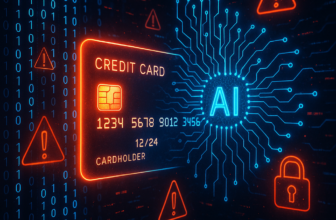Key Takeaways
- Car dealer CRM software consolidated the customer data, lead management, sales process and marketing.
- It enhances efficiency, personalization, conversion of leads and inventory as well as revenue.
- Important features are: lead management, inventory integration, communications tools, sales pipelines, car sales tools, marketing automation, mobile access and reporting.
- All have mobile apps; most have powerful lead management, inventory integration and marketing automation
- Select based on size of dealership, particular needs, integration, cost, usability and support
- Small/midsize dealers should take AutoRaptor or Zoho into consideration. large dealers DealerSocket or Salesforce
- Future trends are AI, advanced mobile, IoT integration, self-service, proactive automation.
- Data privacy, security and integration with AR/VR will be the priorities for the future.
What is an Automotive CRM?
As an owner or manager of a car dealership, you are aware of how complicated and hectic the job can be. It is not an easy task to juggle between leads, inventory, sales processes, and customer relationships. That is where an automotive CRM (customer relationship management) system comes in.
Imagine, a car dealer CRM is the hub “brain” of your dealership operations. It’s a software platform that allows you to manage all your customer data, track leads in the sales funnel, automate important tasks and workflows, and get insights to make better business decisions. When information is no longer trapped in different systems or spreadsheets, a CRM for car dealers can help streamline your entire team’s work.
No matter what you name it – dealership CRM software, CRM automotive, auto CRM or any other name, the main function is still the same – to increase efficiency and result in your sales, marketing and customer service. As a veteran of the industry with two decades of experience on my back at some of the leading dealerships, I can affirm that the implementation of a powerful automotive CRM was a real game-changer. It is something you can’t afford to do without if you are to run a modern dealership.
Advantages of a Dealership CRM software
So what will a car sales CRM do to your dealership? Below are some of the greatest benefits that I have witnessed:
1. Improved insight and personalization for customers Having all of a customer’s history and tastes on one platform, your team can offer tailored recommendations, appropriate offers and overall “white glove” service. No more generic pitches.
2. Improved lead management and conversions Advanced lead routing, scoring, nurturing and tracking abilities make sure nothing falls between the cracks. Follow-up and personalization can increase your lead-to-sale conversion rates tenfold.
3. Simplified inventory management – Many auto CRMs integrate with your stock management system to provide real time stock availability, automate price changes and repo updates, and match up customers with vehicles in your lot or incoming pipeline.
4. Improved sales performance and revenue With the right leads in the right inventory by the right reps at the right times, it comes as no wonder that dealerships reporting in CRM experience more deals closed and higher grosses. Automation also allows the reps to process more volume.
5. More satisfied long-term customers After that initial sale, dealership CRMs will help you keep on top of reminders for services, lease maturities, warranty renewals, recall updates, and other important touch points to maintain customer interest and repeat sales.
6. Automation and streamlining of work Task automation and optimization of workflow From auto-triggered lead assignments and price quotes to bulk email campaigns and approval routing, car sales tools in a CRM make your entire crew more efficient and effective. Work smarter, not harder!
7. Powerful data-driven strategy and planning Real-time dashboards and customizable reports bring you a better understanding of what works at your dealership and what should be improved to adjust your approach timely. No more flying blind.
Unlocking Measurable Growth with Automotive CRM Software
A Car Dealer CRM is not just a way to optimize work, but rather a way to bring real, measurable results. From increased lead conversions to enhanced customer retention, dealerships benefit from huge improvements in critical performance indicators.
The chart below captures the best metrics that are improved by automotive CRM software, demonstrating how it boosts sales, efficiency, and long-term customer loyalty.
Best Features to Look Out for in Car Dealership CRM Software
Given the number of automotive CRMs available these days, it is important to understand what features are most important. Based on my experience in several platforms, make sure you look out for the following:
Best Automotive CRM Software on the Market
With those prime features in mind, which platforms surface? Below is a brief introduction to 3 top car dealership CRMs:
DealerSocket
DealerSocket
Tailored for automotive businesses, particularly franchise dealerships, independent dealers, and Buy Here Pay Here (BHPH) models
Rasons to buy
- + Robust lead management and tracking tools
- + Seamless integration across devices and platforms
- + Advanced reporting and analytics for data-driven decisions
Possible Drawbacks
- –High costs compared to some competitors
- –Complexity may be challenging for non-technical users
- –Integration challenges with existing systems
- ● Custom-based pricing tailored to dealership needs
- ● No free plans or freemium versions available
Salesforce Automotive Cloud
Salesforce
u003cp class=u0022my-0u0022u003eBest suited for automotive dealerships, manufacturers, service providers, and finance groupsu003c/pu003e
Rasons to buy
- + Automation and real-time analytics to enhance efficiency
- + 360-degree customer view
- + Seamless integration with other Salesforce products
Possible Drawbacks
- –Complex data migration from legacy systems
- –User adoption challenges without proper training
- ● Customized pricing based on business needs
Zoho CRM
Zoho
Ideal for car dealerships, auto repair services, OEMs, and automotive parts suppliers looking to streamline sales, manage leads, and enhance customer engagement
Rasons to buy
- + Advanced analytics for informed decision-making
- + Cost-effective for smaller dealerships
- + Highly customizable
Possible Drawbacks
- –Slow customer support responses
- –Overwhelming customization options
- ● Free version for up to 3 users
How to Choose the Right Automotive CRM
With those in mind, how do you choose the best car dealer CRM for you? Consider these key factors:
For smaller dealerships, the affordability and ease of use may be the most important factors, and AutoRaptor or Zoho may be a good option. Larger dealer groups will be interested in the flexibility, power and scale of an enterprise system like DealerSocket or Salesforce.
What is the Best CRM Auto Sales Software for Me?
Ultimately, you are the one who has to choose which is the best automotive CRM for your specific dealership. However, with the above information at the back of your mind, you should be in a position to assess your options and make the best decision.
Consider your biggest challenges and goals. Is it managing more leads? Increasing rep productivity? Turbo-charging your marketing? Improving customer satisfaction and retention? Focus on those aspects of CRM dealership and capabilities that would directly affect those objectives.
For most dealerships, I suggest that you should make a short list of your top 3 contenders and then ask for a demo or trial to truly feel each of the automotive CRMs “in action.” Make sure you get the input from the managers and end-users on the sales, marketing and service teams. The right car dealership CRM should resonate with your entire staff and not just the leadership.
The Future of Automotive Sales with CRMs
Looking ahead, new technologies and auto shopping trends will reshape what dealers need fLooking forward, new technologies and auto shopping trends will change the need that dealers have for a CRM. Future-oriented dealerships should pay attention to the emerging capabilities such as:
- AI-powered analytics and recommendations
- Enhanced mobile auto CRM apps
- IoT data integration on connected cars
- Self-service customer portals
- Proactive automation and opportunity mining
- Augmented reality (AR) and virtual reality (VR) experience
Simultaneously, data privacy rules and cyber threats will drive automotive CRMs to improve access controls, consent management, and security in general. Compliance and risk management will be key aspects.
The bottom line is that the automotive CRM will continue being important for the success of dealerships. However, the platforms will continue to evolve to meet the shifting customer expectations and imperatives of business. Rolling out and optimizing the proper car dealer CRM software – and adjusting accordingly – will be key as the industry adjusts to the new world of auto retail.



